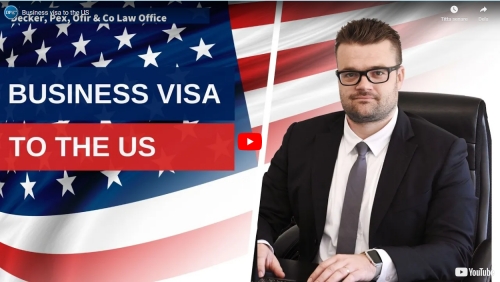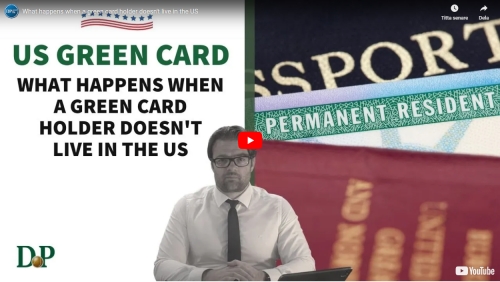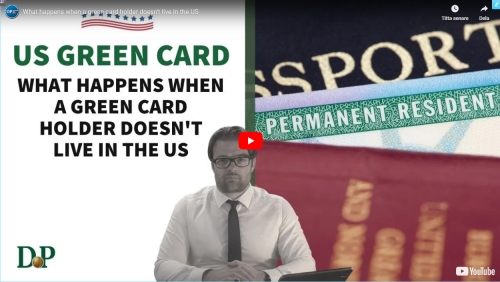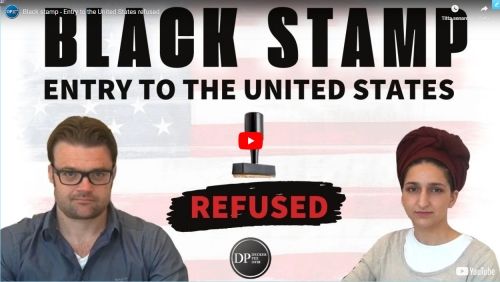Has your US visa application been rejected? You did not receive a proper explanation for the rejection? Not sure what to do next? This article will explain why your visa may or may not get dismissed while examining important terminology, namely, the doctrine of consular nonreviewability. We will first explain what the doctrine consists of, its origins and significance, and then examine specific cases that are relevant to your situation. After reading this article, you should have a clearer understanding of the doctrine of consular nonreviewability, what it means to you, and how it can affect the future of your visa application.

What is the doctrine of consular nonreviewability?
There are various details and procedures to be followed when applying for a US visa, whether as a tourist, as a foreign worker, or as a would-be permanent resident. Every year, the State Department receives millions of visa applications and denies tens of thousands of them.
When a visa application is rejected, the doctrine of consular nonreviewability becomes relevant. The doctrine means that the rejection of visa applications by consular officials is NOT subject to judicial review, aside from unique scenarios to be discussed below.
This means that US immigration policy and specific decisions stand in sharp contrast to countries such as Israel or most of the European union. For example, Israelis who wish to invite spouses, relatives, and friends to visit Israel or receive some form of residence visa, have the right to appeal a rejection if the Ministry of Interior does not accept their application. This right of appeal extends, if with less convenience, to non-Israelis whose visa application was denied. Even the baseline internal appeal to the MoI headquarters in Jerusalem will at least force Ministry of Interior officials to explain and justify the reasoning behind their decision.
Many of our clients intuitively assume that the same is true of US immigration decisions, and find themselves baffled and shocked when they learn that neither justification nor reevaluation are necessary for “routine” rejections of visa applications.
Origins of the Doctrine of Consular Nonreviewability
The doctrine of consular nonreviewability first came to light in two court cases in the 1920s, stemming from the “plenary power” doctrine, which refers to any absolute authority to make decisions. In this particular case, the absolute authority to administer the issuance of visas (entry and residence in the US) is entrusted to Congress by the Constitution. The transfer of power from the Constitution to Congress demonstrates that the administration of visas is a matter dealt with by governmental bodies and not necessarily by the courts.
As such, the doctrine of consular nonreviewability is built upon the plenary power doctrine, based on the notion dealing with visas, Congress and subsequent government agencies established by Congress, such as the United States Citizenship and Immigration Services (USCIS) have absolute authority to make decisions without judicial review. With this in mind, a significant amount of power is given to the USCIS consular officers who can determine the fate of a visa for US citizens and non-citizen. In turn, this means that individuals rejected from visiting or residing in America do not have an inherent right of appeal to the US courts.
Why Might My Visa Get Rejected?
Attorney Michael Decker has elaborated on many of the reasons why a person’s visa might get denied and the consequences they pose to an individual. For example, working without in the United States without a valid work visa, whether you start work before applying for one or work with a tourist visa, staying in the country with an expired visa, or engagement in criminal acts, terrorism, or drug-related activities.
What can I do if my application was rejected?
Once your visa gets rejected, there will be a ‘black stamp’ put upon it, which can occur at the same time as an entry ban for a few years. In addition to receiving a black stamp, a rejected applicant should receive an Application for Waiver of Grounds of Inadmissibility, known as Form I-275, specifically outlining why their visa was rejected. Taking the time to learn why you were rejected can greatly help your case should you choose to reapply for a visa in a few years. For additional support, the Office of the Legal Adviser for Consular Affairs accepts questions by email to advise people on their visa rejections.
Exceptions to the Doctrine
It is clear that the courts have no power to overrule the decision made by consular officers about rejecting a visa, but with the emergence of various court cases and discussions there are rare exceptions to the doctrine. The first was determined in the Supreme Court case of Kleindienst v. Mandel 1972 that if the denial was for a “facially legitimate and bona fide reason” it cannot be appealed; this means that if someone is able to prove that the rejection was possibly ‘unconstitutional’, they may be able to seek out a different solution, applying only to specific cases. Another exception is one where the rejection made by the consular officer was not properly based in law and it can then be appealed for one of two reasons. The first is that the basis for rejection was unconstitutional, and the second was that the consular officer erred in their use of the law as an explanation for why the visa was rejected. Although exceptions have emerged, these seemingly ambiguous cases demonstrate the struggle one may have on a path towards getting a rejected visa accepted, and may instead want to seek out other options moving forward.
Concluding Remarks
Throughout this article, we have defined the doctrine of consular nonreviewability by explaining its roots, and have elaborated on its significance for the lives of US citizens and non-US citizens. Regardless of the situation a person is in, it is clear that this is a complicated matter that poses relevance to anyone applying for a visa, either for themselves or for family members. In any case, it is always beneficial to seek out the legal advice of professionals with experience in the field. At Decker, Pex, Levi, we are happy to provide you with support throughout your visa application to the United States. Contact us at 03-3724722 or 055-9781688, or email us at [email protected].













